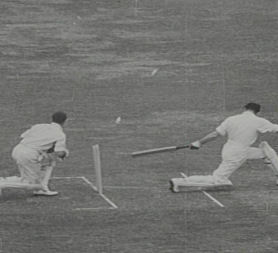British Council puts 1930s and 1940s films online
A series of British propaganda films from the 1930s and 1940s are put online for the first time by the British Council.
The black-and-white films have been digitised, and the first 13 of many more are now up on the internet.
The films were part of a series funded by the British Council over 50 years ago in order to promote Britain and its values to other countries around the globe, particularly in a time when fascism was becoming prevalent across Europe.
For around 20 years the propaganda films and documentaries were produced and they tried to portray how Britons lived. Some of the clips were filmed by famous film-makers including cinematographer Jack Cardiff of Powell and Pressburger fame, and director Ken Annakin who directed Battle of the Bulge.
Embassies and consulates around the world will have presented the films, which promoted the UK’s democratic values.
The films were kept in vaults at the British Film Institute and have not been seen on this scale before.
Working closely with Counterpoint, the British Council and the BFI, the TIME/IMAGE project wants to help make these films accessible to the public, by digitising them and posting them online.

Film archive
It will be an archive of digitised films which will add to the narrative of British cultural heritage and forms a major part of the New Deal of the Mind’s Digital Domesday.
Some 13 films are online already and around another 160 will eventually be placed on the net.
Once all the films are online the TIME/IMAGE project wants to encourage social debate geared towards how Britons perceive the present and the future – through the interpretation of our own historical narratives.
One of the films online already, shows the 1945 General Election. Filmed in Kettering, it shows the Tory John Profumo standing for re-election. He is engaged in a meeting which appears to be staged for the cameras in which he speaks to his agent. Then in another section he appears at the hustings.
The best of British cricketers are shown in another narrated clip, filmed in 1948, which demonstrates the traditional rules of the game and how to perform certain bowling actions.
Following that year’s 4-0 hammering by Australia in the Ashes series, the narrator tries to reassure the public by saying: “Victory is the least that men play cricket for.
“They play it for a host of reasons, ill-defined and hard to seek. On school ground, on city streets, on village green, they play on. For the urge wells deep from quiet places in men and in the land they spring from.”
Other films include one in Kew Gardens and another about the history of the English language.